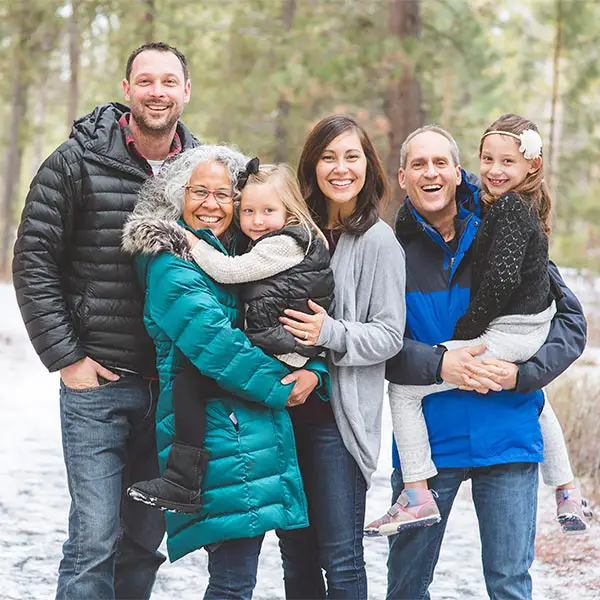
Be a Part of the Fight to End Alzheimer's
Be a Part of the Fight to End Alzheimer's
The millions of people impacted by Alzheimer's disease need your help. Your generosity can help us provide care and support to those facing challenges of Alzheimer's and advance global research. Please make a gift today.
Donate NowSummer 2017
The Summer 2017 edition of the ALZ Media Insider includes new survey results, a new resource for media and actionable insights from our annual research meeting, AAIC 2017.
Headlines in this issue:
Despite sadness, millennials reported confidence, stronger relationships related to their caregiving experience
In a recent survey, nine out of 10 dementia caregivers cited emotional stress as the greatest challenge of caregiving, and millennials were no exception. However, those in this 22-37 age group are different from older groups in that they are most likely to also see the positive aspects of their caregiving experiences.In previously unreleased data on millennials (born between 1980-1995) from a survey conducted in May 2017, the Alzheimer’s Association found that:
- 85 percent of millennials said being the primary caregiver to someone with Alzheimer’s or dementia has positively changed relationships in their family. They are more likely than any other age group to feel this way. For example, millennials are:
- 35 percent more likely to feel this way than the average caregiver.
- 37 percent more likely to feel this way than Gen Xers.
- 64 percent more likely to feel this way than Baby Boomers.
- Almost half of millennials (47 percent) reported developing a stronger relationship with the person they were caring for, and over a third of these caregivers (37 percent) said the reason was because they gained more respect for the person living with Alzheimer’s (see more millennial stats here).
- In terms of caregiving tasks, millennials feel more comfortable than the average caregiver providing hygiene and personal care (87 percent of millennials vs. 79 percent of all caregivers), as well as potentially daunting tasks including medical care (89 percent vs. 79 percent) and financial assistance (77 percent vs. 67 percent).
- Millennials use more positive feelings to describe how they feel as caregivers, using words like “productive” (88 percent of millennials vs. 77 percent of all caregivers), “confident” (86 percent vs. 71 percent), “strong” (83 percent vs. 76 percent) and “heroic” (69 percent vs. 37 percent).
More information and resources:
- Expert Interview: Ruth Drew, Director of Family & Information Services, Alzheimer's Association.
- To speak with a millenial caregiver about the challenges of Alzheimer's, contact Mike Lynch.
- Read one millenial's caregiving story here.
Early-Stage Advisory Group: Pam Montana’s abrupt shift from tech exec to advocate living with Alzheimer’s
New members of the Alzheimer’s Association’s 2017-2018 Early-Stage Advisory Group are now available to share their unique perspectives on dementia. Following is one advisor’s story.Last July, at age 61, Pam Montana was diagnosed with younger-onset Alzheimer’s disease. A sales director at Intel at the time, Pam was having trouble remembering conversations at work and learning new technology and sales commission tools.
Finally, Pam got her diagnosis—devastating news for her and her family, but she was relieved to understand why she had been struggling with tasks that had come naturally to her for so long. She gave herself one night to lament her diagnosis. The very next day, she committed to becoming a fierce advocate.
Today, Pam has retired from Intel and dedicates herself full-time to Alzheimer’s awareness. She’s a member of the Alzheimer’s Association National Early-Stage Advisory Group (ESAG), a committee of nine people with dementia whose goal is to help more people in early stages of the disease to:
-
Seek assistance
-
Be a part of the planning process for their own care
-
Pursue medical interventions
-
Maximize their independence for as long as possible
More information and resources:
- Expert Interview: To speak with Pam or another member of our Early-Stage Advisory Group, please contact Mike Lynch at the Alzheimer’s Association.
Your Dementia Risk: Making Sense of Research from AAIC 2017
With more than five million Americans living with Alzheimer’s and no proven cure or treatment for the disease, many are asking, "Is there anything I can do to reduce my risk of cognitive decline?” At the Alzheimer’s Association International Conference 2017 (AAIC 2017), researchers presented new studies offering potential answers. Amid a wide array of findings, these stood out as actionable:
- You Are What You Eat – New findings indicated close adherence to the MIND (Mediterranean-DASH Intervention for Neurodegenerative Delay) diet and Mediterranean diet were associated with 30 to 35 percent lower risk of cognitive impairment in healthy older adults.
- You’re Never Too Old to Modify Your Risk – The authors of The Lancet Commission on Dementia Prevention, Intervention and Care suggest more than one-third of global dementia may be preventable because it is due to nine modifiable factors, including education up to age 15, hypertension, obesity, hearing loss, depression, diabetes, physical inactivity, smoking and low social contact.
“These findings demonstrate our ever-growing knowledge that lifestyle intervention has the potential to modify cognitive decline,” said Maria Carrillo, Ph.D., chief science officer at the Alzheimer’s Association. “While we continue to advance research to find better treatment and ultimately a cure, furthering our understanding of the role of lifestyle intervention will be a key component of our fight to end Alzheimer’s.”
The Alzheimer’s Association has national and local experts available to share their insights on these studies and the broader issue of reducing the risk of cognitive decline through healthy lifestyle interventions.
More information and resources:
- Expert Interview: Keith Fargo, Ph.D., Director of Scientific Programs & Outreach, and Maria Carrillo, Ph.D., Chief Science Officer, Alzheimer’s Association.
Media Contact
Mike Lynch
Media phone line: 312-335-4078
Email: media@alz.org
